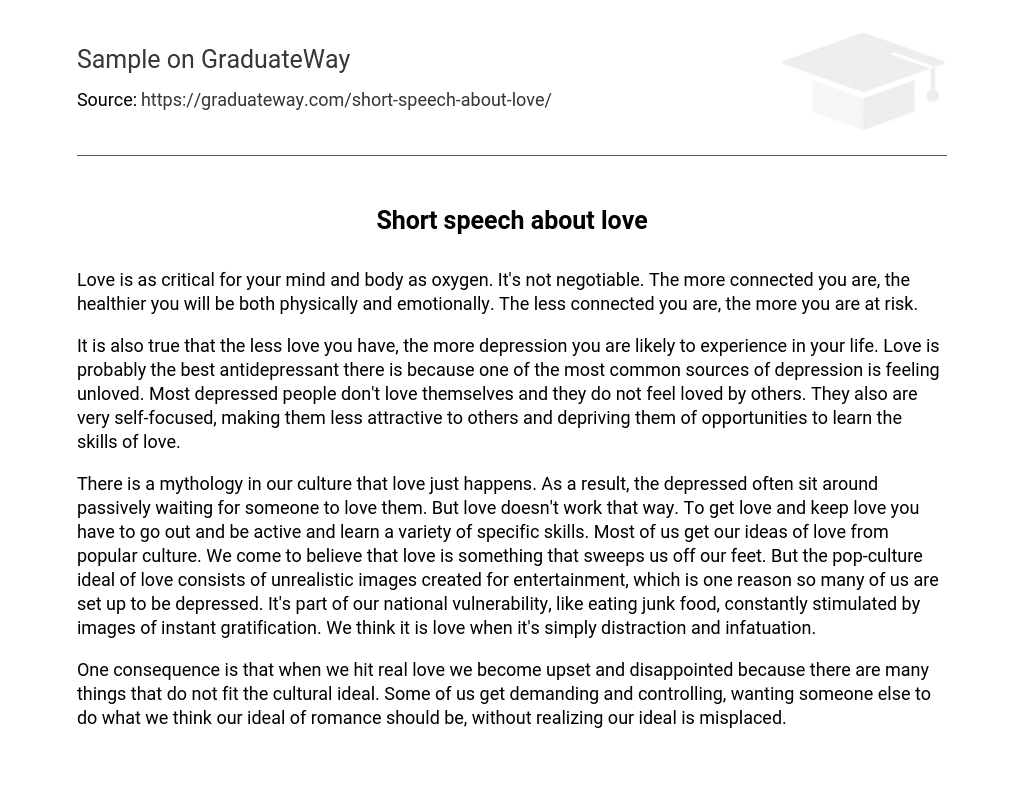Love is as crucial for your mental and physical well-being as oxygen. It is a vital element. The stronger your connections, the more they impact your overall health, both emotionally and physically. Conversely, weak connections make you more vulnerable.
Having more love in one’s life can decrease the likelihood of experiencing depression since it functions as a potent antidepressant that addresses the underlying cause of feeling unloved. Individuals who are depressed frequently lack self-love and perceive a deficiency of affection from others. Moreover, their self-centeredness hampers their ability to cultivate loving qualities and diminishes their appeal to others.
There is a widely held belief in society that love simply happens. Therefore, individuals who are feeling down often passively wait for someone to love them. However, this is not how love works. To find and maintain love, one must actively engage and develop specific skills. Many of us learn about love from popular culture, where it is portrayed as overwhelming. However, these depictions are unrealistic and created for entertainment purposes, leading to an increased risk of depression. This susceptibility is similar to our collective vulnerability to junk food—we are constantly bombarded with images of instant gratification that we mistake for love when they are actually just distractions or infatuations.
One consequence of encountering genuine love is feeling upset and disappointed due to the misalignment with cultural expectations. Some individuals may become demanding and controlling, expecting their partners to conform to their own romantic ideals without realizing the inherent misplacement of these ideals.





